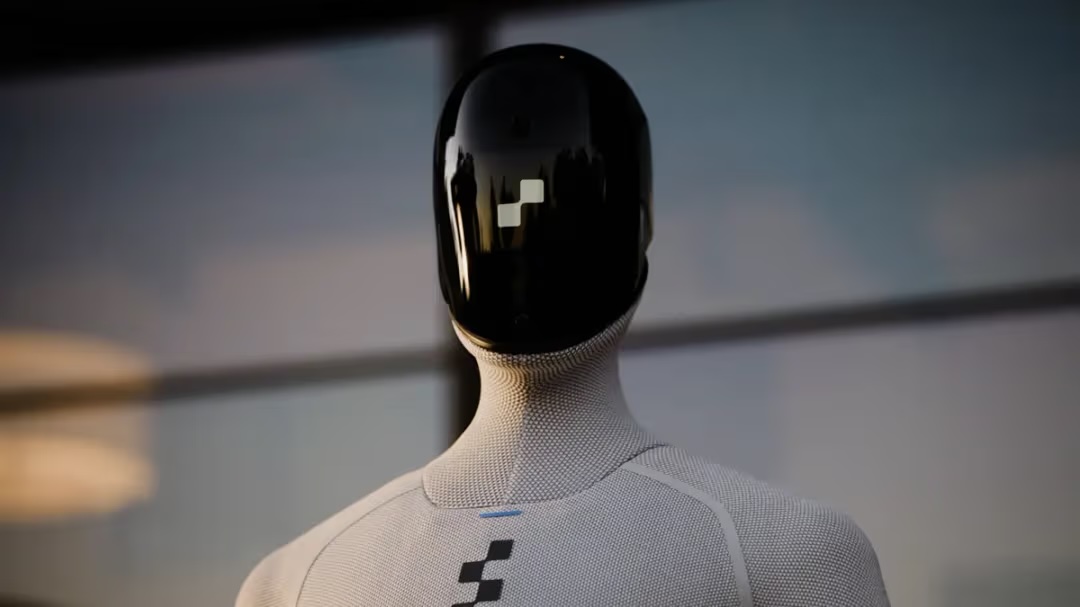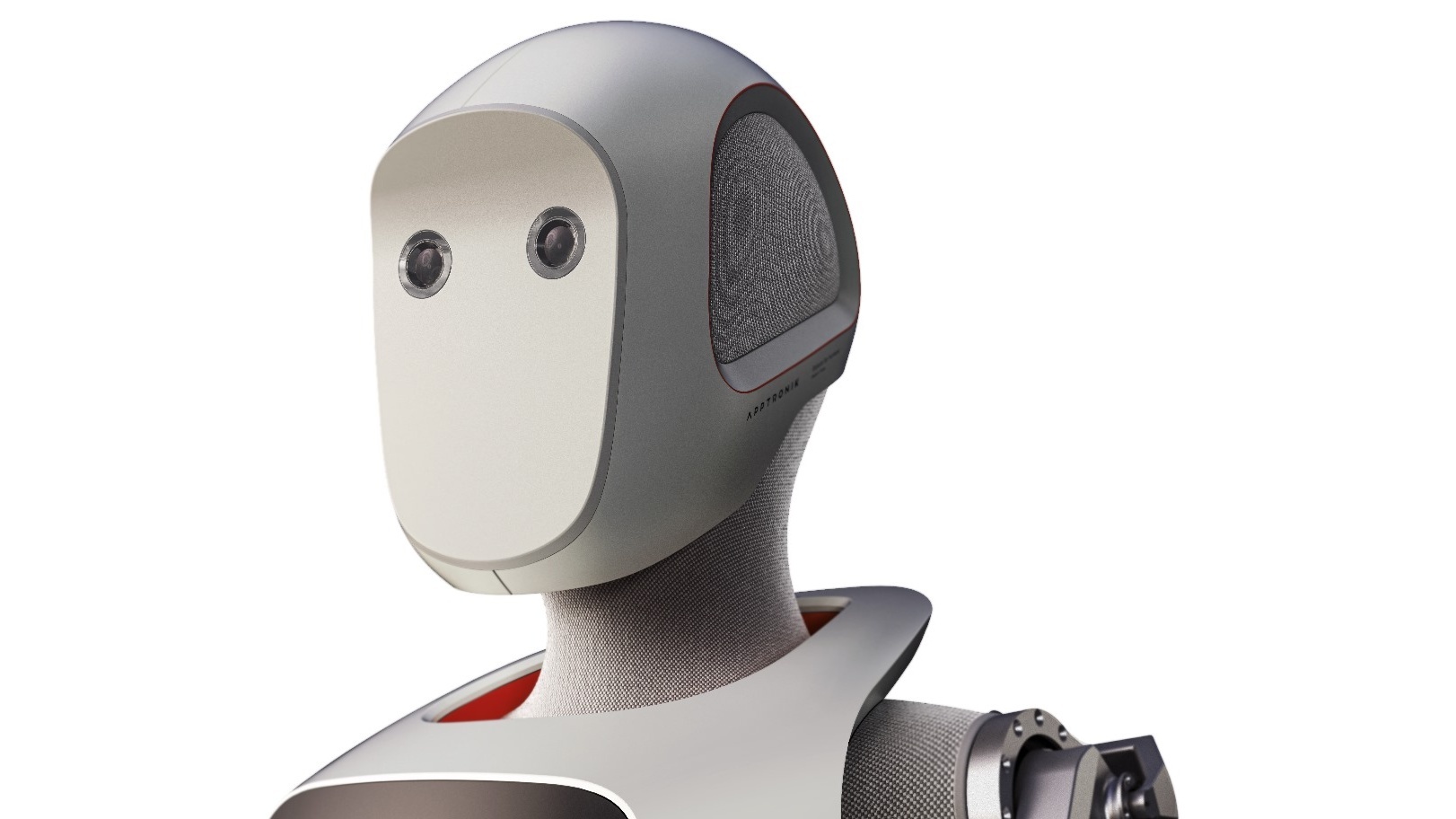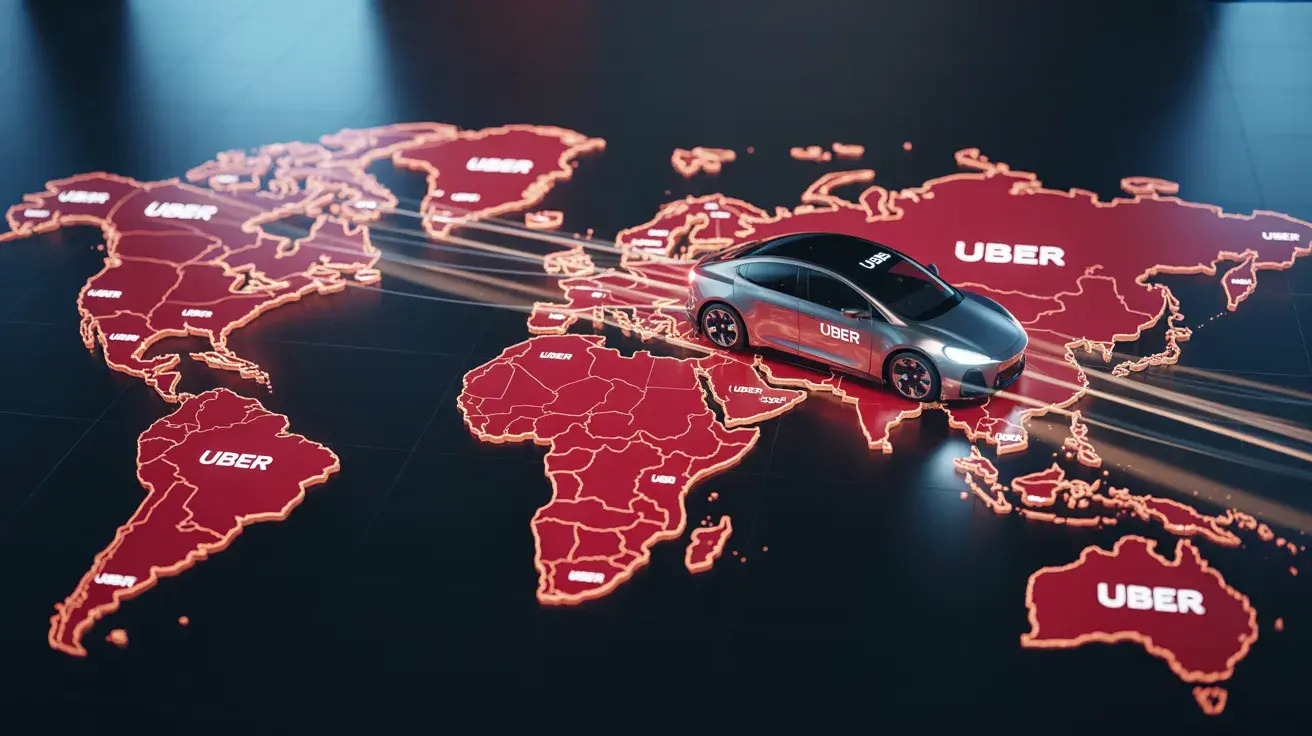Figure sued over 'skull-crushing' force
PLUS: Physical Intelligence hits $5.6B
Read Online | Sign Up | Advertise
Good morning, robotics enthusiasts. Figure AI just got hit with a whistleblower lawsuit claiming its humanoids pack enough force to fracture a human skull — and that executives buried safety warnings to fuel its $39B valuation.
Now the Bay Area’s hottest robotics startup is potentially facing a courtroom battle that could reshape how we govern the machines we’re racing to unleash.
In today’s robotics rundown:
Figure sued by whistleblower over risky bots
Physical Intelligence soars to $5.6B
Uber launches UK bot-delivery service
Robot tracking with centimeter-level precision
Quick hits on other robotics news
LATEST DEVELOPMENTS
FIGURE AI
🤖 Figure sued by whistleblower over risky bots

Image source: Figure AI
The Rundown: Figure AI is facing a bombshell whistleblower lawsuit from its former head of product safety. Robert Gruendel claims he was fired for warning executives that Figure’s humanoids pack enough force to “fracture a human skull.”
The details:
Gruendel cites an incident where a malfunctioning robot carved a quarter-inch gash into a steel refrigerator door and claims execs downplayed concerns.
The lawsuit says Figure execs, including CEO Brett Adcock, pushed to water down safety, allegedly prioritizing the company’s $39B valuation over ethics.
Figure AI denies the claims, arguing that Gruendel was terminated for poor performance, and promises to fight the lawsuit in court.
Gruendel says he was asked to prepare a safety roadmap for investors, and that the plan he presented was “gutted” as the funding round closed.
Why it matters: The lawsuit landed just two months after Figure’s valuation soared to $39B — a jaw-dropping 15-fold jump since early 2024. The suit may be among the first whistleblower cases focused on humanoid safety, raising questions about whether Silicon Valley’s “move fast” culture can coexist with superhuman machines.
PHYSICAL INTELLIGENCE
☕️ Physical Intelligence soars to $5.6B
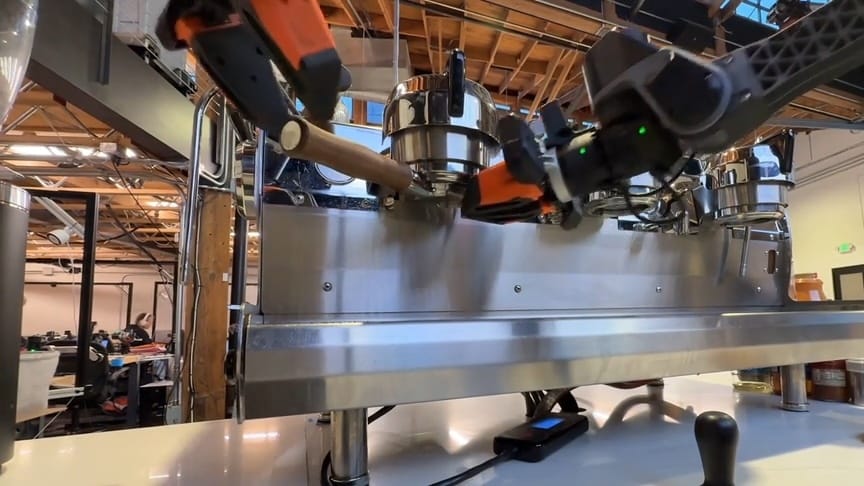
Image source: Physical Intelligence
The Rundown: Physical Intelligence, a young robotics software startup founded by AI veterans from DeepMind, Stanford, and UC Berkeley, just closed a monster $600M funding round, rocketing its valuation to $5.6B just one year after launch.
The details:
The startup is tackling the core challenge of robotics: building a universal “brain” system capable of powering any robot for any task.
The company just unveiled its π*0.6 model, which uses reinforcement learning to let robots practice and learn (and make espresso) from their own mistakes.
Alphabet’s CapitalG led the round, with major support from Thrive Capital, Lux Capital, Jeff Bezos, Index Ventures, and T. Rowe Price.
With $600M in fresh capital, Pi becomes one of the best-funded pure-play robot intelligence startups in Silicon Valley’s race to dominate embodied AI.
Why it matters: Pi raised $400M at a $2.4B valuation just a year ago. Now it’s leapt to $5.6B, more than doubling in value. The bet from investors like Bezos and Alphabet is clear: the real breakthrough in household robotics might not come from better machines, but from software smart enough to run on any robot.
UBER
🥡 Uber launches UK bot-delivery service
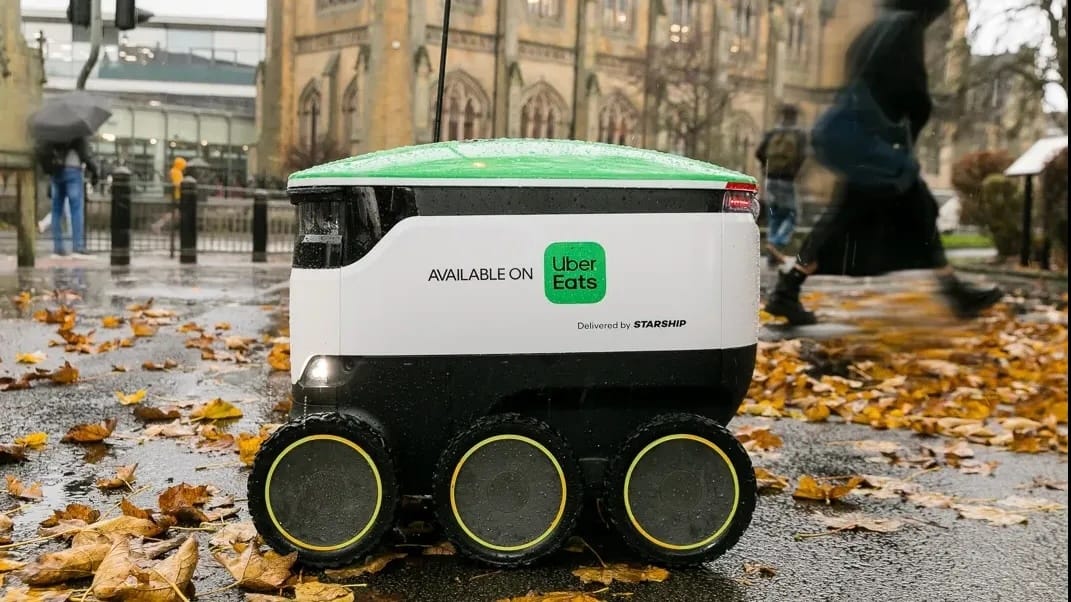
Image source: Uber
The Rundown: Uber Eats is teaming up with Starship Technologies to launch robot-powered food deliveries on UK sidewalks. The pilot marks Uber’s first delivery bot trial in Europe after testing across U.S. cities, with partners like Avride and Serve Robotics.
The details:
The initial rollout will cover Leeds and Sheffield, with orders fulfilled by Starship’s autonomous six-wheeled robots working from select merchants.
Robots will navigate city sidewalks at Level 4 autonomy, with no human intervention needed for crossings or navigation.
The Starship partnership plans to expand further in Europe by 2026, then cross the Atlantic to the U.S. in 2027.
Uber’s food delivery service has worked with Serve Robotics in the U.S. for years, and this year signed on with Avride’s sidewalk robots in select markets.
Why it matters: Both companies tout this partnership as a leap toward cheaper, faster, and greener last-mile delivery — and a preview of what happens when delivery apps ditch gig workers for Starship’s fleets of nearly 3K delivery robots already tested in 270-plus locations worldwide.
POINT ONE NAVIGATION
📏 Robot tracking with centimeter-level precision

Image source: Point One Navigation
The Rundown: San Francisco startup Point One Navigation just closed a $35M Series C led by Khosla Ventures to make autonomous vehicles, robots, and drones know exactly where they are — down to the centimeter.
The details:
The startup has developed a “positioning engine” that combines augmented GPS, computer vision, and sensor fusion to pinpoint location within 1 cm.
The company’s tech already powers over 150K vehicles for an unnamed EV maker, plus contracts with a 300K-vehicle last-mile delivery fleet.
Point One is now pushing to extend cm-level accuracy indoors for warehouse robots and industrial settings, TechCrunch reports.
The funding will expand Point One’s Polaris RTK Network, a system of lunchbox-sized stations on cell towers that provide corrections to locations.
Why it matters: The company’s tenfold growth in manufacturers over the past year shows that precision location is becoming essential infrastructure, as the next generation of robots, drones, and self-driving vehicles need to know their position within centimeters to operate safely in complex environments.
QUICK HITS
📰 Everything else in robotics today
Waymo received authorization to operate fully driverless vehicles across California, covering most of the Bay Area, Sacramento, and nearly all of SoCal.
Google DeepMind appointed Aaron Saunders, the former CTO of Boston Dynamics, with 22 years at the company, as its new VP of hardware engineering.
Chinese robotics company AgiBot’s A2 humanoid just set a Guinness World Record by walking 65 miles (106 km) nonstop across provinces, from Suzhou to Shanghai.
Armstrong Robotics, a San Francisco-based startup, is using AI-powered seven-axis robot arms to automate restaurant dishwashing.
OpenMind just opened pre-orders for its modular BrainPack robot autonomy platform at a $999 deposit, with device shipments planned for 2026.
TKO CEO Ari Emanuel floated the idea of hosting UFC fights with Elon Musk’s Optimus after watching “unbelievable” progress in punching and kicking.
Elon Musk dropped an AI-generated video showing Optimus robots integrated into daily life in an attempt to showcase how far the technology could be pushed.
Swiss startup Flexion Robotics emerged from stealth with $50M in Series A, backed by Nvidia’s venture arm NVentures and DST, for its robot ‘brains.’
Bedrock Robotics, in partnership with Sundt Construction, says it has deployed the construction industry’s largest supervised autonomy system for mass excavation.
Agility Robotics announced that its Digit humanoid has moved more than 100K totes at a GXO Logistics warehouse in Georgia, marking a logistics milestone.
Chinese startup PHYBOT unveiled its full-size M1 humanoid with a backflip demo to claim what it says is the “most powerful humanoid ever created.”
Hong Kong University of Science and Technology developed a basketball-playing robot trained via SkillMimic AI using human demos and MoCap suits.
COMMUNITY
🎓 Highlights: News, Guides & Events
Read our last AI newsletter: OpenAI braces for "rough vibes"
Read our last Tech newsletter: Ozempic’s next trick — slow aging
Read our last Robotics newsletter: Sunday’s humanoid can do your dishes
Today’s AI tool guide: Use NotebookLM to turn data into visual insights
Watch our last workshop: The Human-First Agentic Content Workflow
See you soon,
Rowan, Jennifer, and Joey—The Rundown’s editorial team
Stay Ahead on AI.
Join 2,000,000+ readers getting bite-size AI news updates straight to their inbox every morning with The Rundown AI newsletter. It's 100% free.


